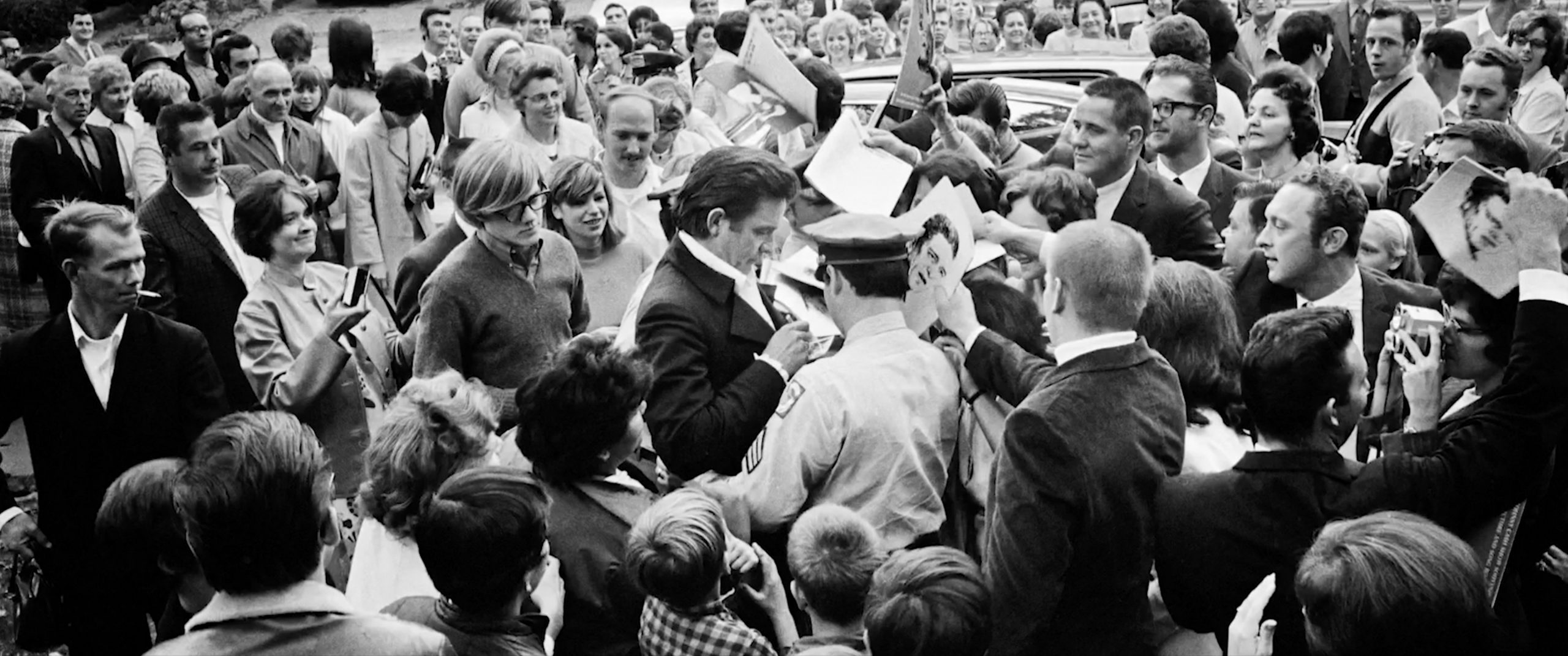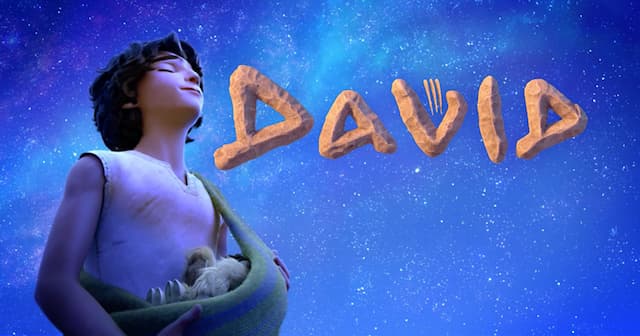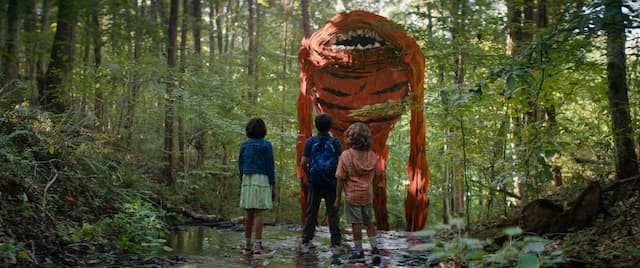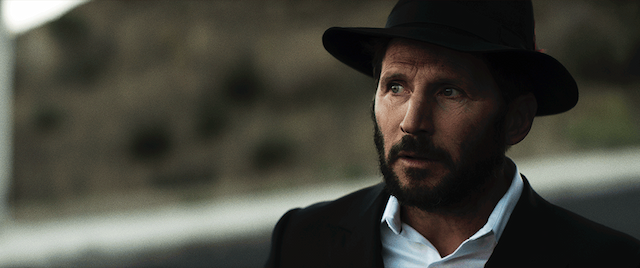'Johnny Cash: The Redemption of an American Icon' Film Explores Country Superstar's Undeniable Faith

When I was just a baby, my mama told me, ‘Son, always be a good boy, don’t ever play with guns’ But I shot a man in Reno just to watch him die. – Johnny Cash, “Folsom Prison Blues”
As the aforementioned song lyrics suggest, Johnny Cash was a man of great contrasts. From his God-fearing, hardscrabble upbringing in rural Arkansas, this icon of American music was known as much for the emotional darkness that tormented him throughout his life as he was for his eternal journey of faith.
According to Rolling Stone magazine, “(Cash) was a born again Christian whose gospel albums thundered with righteous indignation over humankind’s sinful ways.” Yet he was a recovering drug addict who once told The 700 Club’s Scott Ross that “one is too many and 1,000 is not enough.”
Simply put, Johnny Cash was an enigma, his career that of a tormented superstar. Despite all of the bleak negativity that permeated the earlier portion of his life, Cash fought fiercely to overcome his demons with the help of the love of his life, June Carter Cash, and his unquenchable thirst for redemption through faith in Jesus Christ.
It is that thirst for redemption that serves as the foundation of a new documentary, Johnny Cash: The Redemption of an American Icon, now available on Digital and On Demand.
Directed by Ben Smallbone, brother of for KING & COUNTRY’s Joel & Luke Smallbone, the film features interviews with such luminaries as Cash’s son John Carter Cash, his sister Joanne Cash Yates, music heavyweights Sheryl Crow, Wynonna Judd, and Tim McGraw, theologians Greg Laurie and Franklin Graham, and many others.
I recently sat down with John Carter Cash to discuss the new film, his father’s special relationship with evangelist Billy Graham, and his undeniable faith in Jesus Christ, one that sustained him through some of the darkest depths imaginable.
First off, Johnny Cash was known as a saint to some and a sinner to others. You knew him as Dad. Taking a step back for a moment, how would you describe the legacy that is your father’s?
I don’t know if there was much of a saint in there. I think we’re all sinners. He was not afraid to show his flaws. Dad was a kind man. He was gentle, he was loving, he was always willing to listen. He stood up for those who couldn’t speak or wouldn’t speak for themselves. He had a way of being claimed by people from all different walks of life. He had fans all the way across the board. But I think his legacy is great music, the music that he made throughout his lifetime, his words, and his writing. I believe people don’t know as much about his faith that was of utmost importance to him.
It’s something that he carried with him through his life and through his greatest struggles. There were periods where he was having great success in life. He showed gratitude when he was having the success, and he reached out and sought out help when he needed to at those periods of struggle. He had bravery about the way that he was made up and who he was. He had courage in that he was not afraid to say what he believed in and whether it was popular or not. Part of his legacy, I think, is that hopefully artists that are coming in on the scene today, can be more honest and true to who they are. Hopefully every man can glean understanding and gain from the same well.
What was the inspiration or the catalyst for making Johnny Cash: The Redemption of an American Icon? How did this project come together?
I’ve seen some of the work that the production company had done, and I believed in their ability to do (a good job). And it was part of our sort of creed, to create a series of works that were focused on my Dad’s faith just because that’s what he wanted. He wanted his word to be carried on and let it be known that faith was a big part of who he was. And, when we got to listen to the recordings that were done during the writing of his second autobiography, Cash, he talked a lot about his faith, and he talked a lot about some very sensitive subjects. We asked ourselves what’s the best way to share these with the world? What would he like for people to know about him? This film seemed to be a great way to do so. I believe that the person who watches it will have a more personal connection with my father. They will know him better on a personal level when they get done watching it. And that was the goal from the beginning, and I believe it is successful in doing so.
There have been a lot of documentaries and feature films done on the life of Johnny Cash over the years. What sets this one apart from all the others?
There is great diversity and the folks that are being interviewed are from all different walks of life. We hear from fans, contemporaries ranging from Alice Cooper to Wynonna Judd to Tim McGraw to family members like his sister and my aunt Joanne (Cash Yates). These are people that knew him very well. People that were connected to him on a spiritual level. Scholars like Greg Laurie, or Franklin Graham, who is Billy Graham’s son and knew my father well. And then Dr. Graham, of course, was one of my Dad’s best friends. He had a lot of great insight that you can’t find it all in one place. And then the connective tissue to his faith as a Christian is also very important. I believe (this film) is an accurate picture of the man and his heritage. It’s just a good way to understand him.
As you mentioned, such a great group of contributors to this project … Marty Stuart, Wynonna Judd, Sheryl Crow, and Tim McGraw just to name a few. Johnny Cash was truly an icon, influence, and hero to them. How valuable was their participation to this film?
Invaluable. Most certainly. I’m very grateful to those folks because they were excited to be a part of it. My father means something specific to each of those people. He came from a very humble upbringing. There’s a great message there in that you can rise up and create something great in life from a very humble upbringing. Also, there’s a great message of forgiveness there. You get to learn what made the man tick. I believe that the people that gave the effort and did the interviews for the film, give it a body and a scope that sort of makes it unique.
There was something about Johnny Cash that you couldn’t quite put your finger on. He seemed to be larger than life. Can you comment on that a bit?
I think if we understood it, he wouldn’t be interesting anymore. I think that part of it was the mystery, the allure. But I think the connection that people feel with him is because he honestly loved everyone. He honestly had a heart for all people, he had a true sympathy and sometimes empathy for those that he connected to. And he considered himself one with humanity, not separate from it. And that connection is evident in the music. It’s evident in the way he lived his life.
A current that ran throughout your Dad’s life from childhood until his death was his faith. It was something that never left him despite many valleys that he soldiered through. What was it about his faith in God that sustained him?
It was something that was just a part of his intrinsic nature. I think that he saw God as not a destructive, angry God, or a God that if something horrible happened within his life, I don’t think he saw God as being the cause of that, or that it was God’s will in so much that we live on a fallen plane existence. And that here, where we are on this earth is not heaven. We don’t understand the elements of the (Holy) Spirit, but we can reach out to those strengths from Christ, from God, and from the Word. And we can find that strength to make it through, sometimes minute by minute. With my Dad, even though he lost his brother when he was young (12 years old), he lost my mother at the end of his life. But he never cursed God. He always found a reason to carry on. And he always found strength and connection with the grace of redemption.
One part of this documentary that fascinated me was a cave where Johnny Cash essentially laid down to die. What is the significance of that cave in the overarching context of his life? What did he find in that cave?
That’s his period in the wilderness. He basically laid down to give up his life. He was done. He’d given everything that he had. His marriage that he’d been in for a while was at its end. He didn’t feel the connection with my mother. He wasn’t communicating with her. He was a total mess. And he crawled into that cave, sort of out of his mind on drugs, threw away his flashlight, and then woke up alone and afraid in the darkness. It was there that he called out to God. He decided that he will make this effort. Help me get out of here and I’ll give my life to you. And he physically went through the actions of crawling on the ground in the darkness until he finally saw a little speck of light.
If it wasn’t daylight, he would not have been able to find that light. And then he came out of that cave and turned his life around. But it wasn’t happy ever after that for him. He experienced reentering that cave later on, figuratively, by falling back into the trappings of addiction again. My Dad wasn’t perfect. He made those mistakes. He kept coming back and having the same encounter once again. He was experiencing his own humanity and his own nature as a sinner. Set all of that aside, by the end of his life, in many ways he was more connected than he ever had been to God. He was also more connected and in love with my mother than he ever had been. And it’s because of his endurance. He stuck with it. He kept following his heart. He kept making music. He kept being creative. He kept being open to the (Holy) Spirit.
Another focal point of this documentary is Johnny Cash’s relationship with Billy Graham. On the surface, it could be seen that they were very opposite … a superstar country singer and a world renowned evangelist. But when you drill down into who they were as individuals we find that they had a great deal in common. Your thoughts?
Well, I was also very fascinated with their relationship after my father passed away. I adored Billy and knew him from when I was growing up. When I was young, he was always so kind to me. I went and visited him a couple years after my Dad went to be with the Lord. I asked him what was so special about his relationship with my father? And he said, “Well, we were just Christian brothers.” And that was really his answer. That was what he had to give, because they were common men. They both came from humble upbringings, and they were there to support each other as brothers. And so, that’s what it boils down to. They were these great men who were given these monstrous gifts. But in many ways, they’re the same as you and I. They needed each other to make it across to the next day, to the next thing. It was also to continue the message (of Jesus).
After audiences have seen Johnny Cash: The Redemption of an American Icon, what would you like to see people take away from the viewing experience? What’s your greatest hope for the film?
I hope to hear, “I thought I knew your father until I saw this film.” I think that’s it. I think that this film just sheds light on the honest truth in many ways that you won’t find elsewhere. I believe that this film just gives light to the truth. And no matter what, if you’re a Christian, if you’re not a Christian, if you’re searching, if you’re a Johnny Cash fan, whatever this film is for you, you will definitely see what Christianity meant to my father and to see what his salvation meant to him. But there’s so much more. And I think that the viewer will walk away feeling like they know my Dad on a personal level.
Johnny Cash: The Redemption of an American Icon is now available on Digital and On Demand.
Watch a trailer for Johnny Cash: The Redemption of an American Icon:












